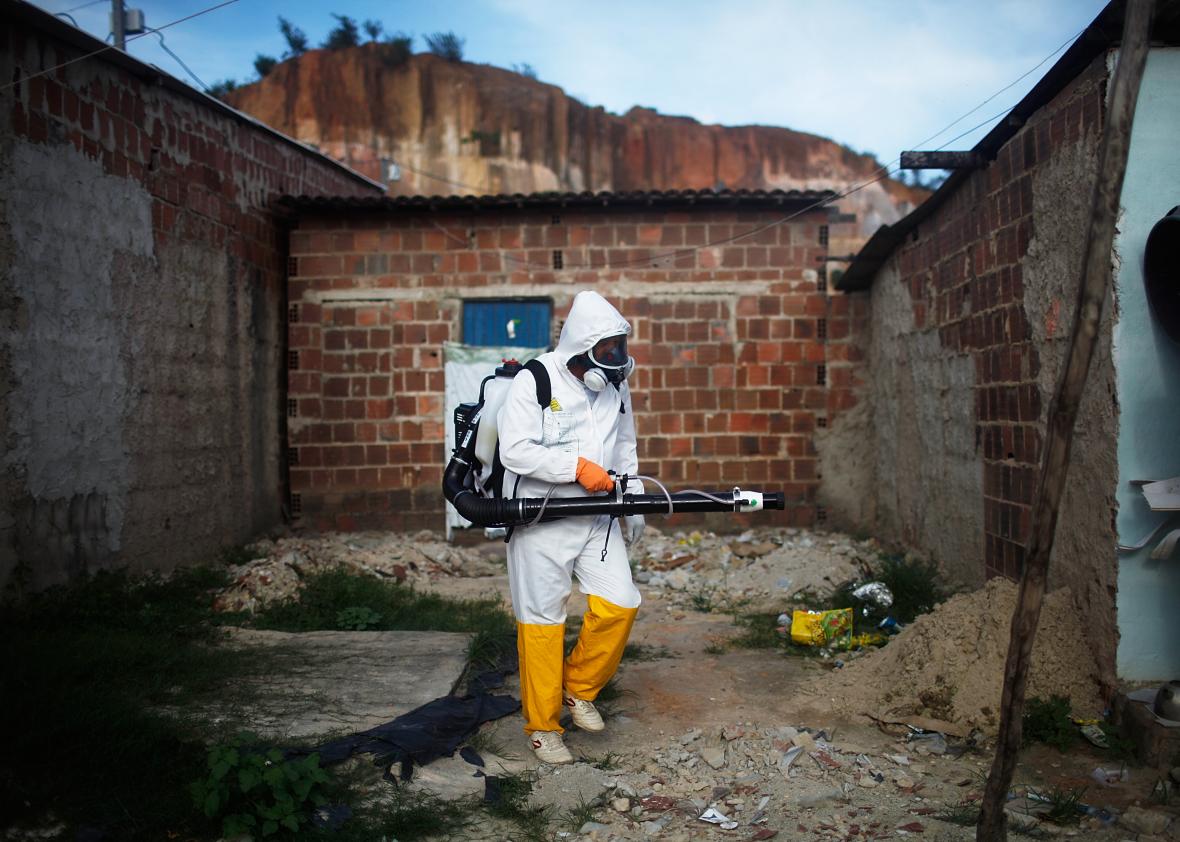Future Tense Event: Can We Engineer Away the Zika Virus?

Mario Tama/Getty Images
In a matter of weeks, the Zika virus has gone from being a virtually unknown phenomenon to a “Public Health Emergency of International Concern.” And for good reason: The virus—for which there is no treatment—is spreading quickly through the Americas, carried by the Aedes aegypti mosquito.
Human development, climate change, and droughts will only make mosquitos more widespread, allowing them to carry diseases like dengue and malaria to new places. Around the world, researchers are trying to genetically engineer mosquitoes so that they can’t transmit dangerous viruses. But anyone who has seen Jurassic Park knows that a little change to the ecosystem can have serious effects. What might be the consequences of messing with the world’s deadliest animal? Are there other diseases that we may want to engineer away? If so, how should we proceed?
On Tuesday, Feb. 23, join Future Tense in Washington, D.C., for a lunchtime conversation on Zika as a case study in potential technical solutions to deadly diseases. For more information and to RSVP, visit the New America website.
Participants:
Andrew Maynard
Professor, School for the Future of Innovation in Society, Arizona State University
Director of the Risk Innovation Lab, Arizona State University
Kevin Esvelt
Assistant professor and principal investigator, Sculpting Evolution Group, MIT Media Lab*
Technology development fellow, Wyss Institute for Biologically Inspired Engineering, Harvard Medical School
Eleonore Pauwels
Senior associate and scholar, Science and Technology Innovation Program, Woodrow Wilson International Center for Scholars
Bina Venkataraman
Carnegie Fellow, New America
Director of Global Policy Initiatives, Broad Institute, MIT & Harvard
Grace Ostera
Director, Immigrant Health Initiative, Microbiology & Immunology Department, Georgetown University Medical Center
Moderator:
Richard Harris
Science correspondent, National Public Radio (on leave)
Visiting scholar, Consortium for Science, Policy & Outcomes, Arizona State University
Update, Feb. 11, 2016: This post was updated to include an additional affiliation for Kevin Esvelt.
Future Tense is a partnership of Slate, New America, and Arizona State University.
